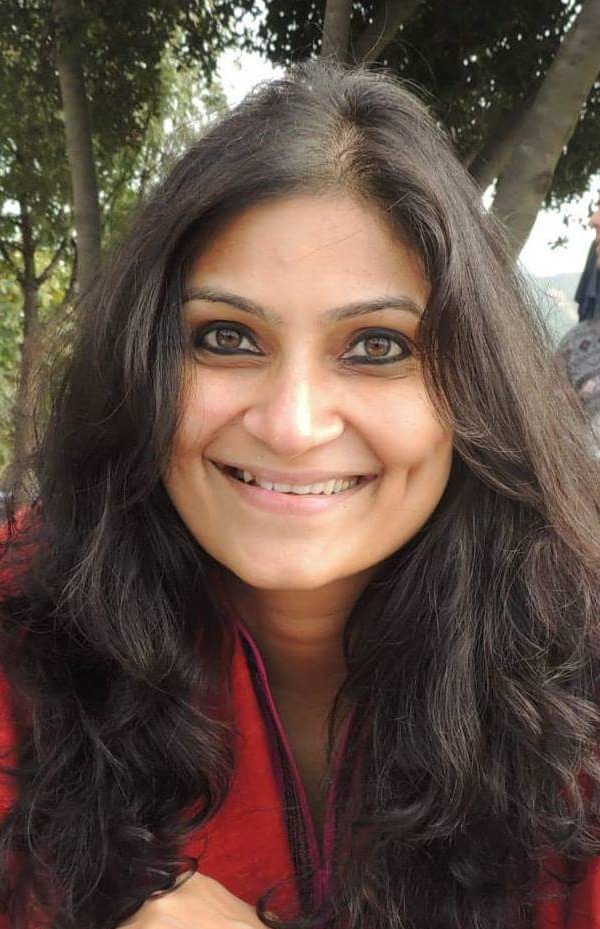Freedom. Of the many nuanced and insightful concepts I encounter in my work as a psychotherapist, freedom has so many different meanings and shades. It evokes so many emotions and feelings… sadness, joy, fear, exhilaration, excitement, optimism, hopefulness, strength, resignation. It all depends on the person seeking that freedom for him- or herself.
“Dear Divya, I read your email several times over this week since our session. I agree with your pointers about not clouding my mind with expectations and wishful thinking from my spouse. It’s these expectations that have led to so much disappointment and sadness in these past few months. I have tried communicating from my heart but it falls on deaf ears. I realise I need to focus on what I can take charge of and I have started doing that. This self-care work is difficult, to be honest, but if I don’t take care of myself, and if I don’t shower myself with love then I will be stuck in this loop of wanting and expecting from others. Thank you for pointing me in that direction. The work has started.”
I reflected on this email from a wonderful, kind person I work with in psychotherapy. I was taken back to my own fleeting feelings of sadness from two weeks ago, when I felt the lack of support from loved ones in the moments that grief ripped me from inside yet again. Most of us have felt let down by family and friends, people who are supposed to care and be there, who sometimes are so far removed from the goings and comings in your life, where the chasm is so wide that you wouldn’t even know where to start. That’s when the loneliness and separation fester.
“Dear Ma’am, the sadness engulfed me. I woke up sad, I was sad throughout the day. It has been twenty years with this crippling feeling of being numb and lost. I feel worthless, useless, a failure. Countless years of antidepressants and several therapy sessions with several people, and I am still stuck. You are the fifth therapist I am reaching out to. I want freedom from this suffering. Where do I start yet again?”
And so the list goes on. I want freedom from:
• My panic attacks
• The misery inflicted by my in-laws, my parents, my friend, my lover, my boss, my…
• My distress inducing thoughts and the loop they get into
• The sadness caused by failed expectations.
• The way I self-deprecate, judge myself so harshly
• My heartache
• These suicidal thoughts and impulses
• The pain caused by emotional attachments
• My anger/guilt/resentment/failures
• My failed relationship(s)
• My addictive behaviour patterns
• (Whatever else you can think you want freedom from)
These are the reasons people have reached out for over and above “I just want to be happy.” When you think about it, the very definition of freedom is simple: the absence of things that constrain us. So how do I approach the concept of freedom in my work with my clients?
Failures, mistakes, regrets, guilt, resentment make it to the list of top things one is grappling with. Strengths don’t even make the cut!
Our initial conversations steer towards bringing about a sense of emotional regulation first, and then onto our inherent search for what brings meaning to our lives. Questions like “What really matters to you, deep in your heart?” “What do you want to do with your time on the planet?” “What sort of person do you envision yourself to be, and would like to strive towards?” “What personal strengths and qualities do you want to develop?”
I take stock of how many of these individuals struggle with low self-worth, a low self- esteem. I usually don’t call it out because they don’t need anyone else saying what’s “wrong” with them. Empathy, kindness, compassion, authentic presence are far more healing.
I ask for their strengths and victories, and that’s when it gets interesting. Because I get blank looks. “I never thought of those.”
Failures, mistakes, regrets, guilt, resentment make it to the list of top things one is grappling with. Strengths don’t even make the cut! And when our relationships with the people around us and the world are flailing, we further fall into the depths of despair.
“Everything can be taken from a man but one thing: the last of the human freedoms—to choose one’s attitude in any given set of circumstances, to choose one’s own way.”
Viktor Frankl said it right in his 1946 book A Man’s Search for Meaning where, as a prisoner in the Nazi concentration camps during World War II, he chronicled his experiences. He spoke of hope, and identifying a purpose to live, which would be used as a guide post to survive the atrocities they experienced.
Purpose. Meaning. Happiness. Inner potential. Choice.
But what if there was more to life than just living? What if life can be lived well, authentically, like a spring that just flows effortlessly, around the stones, and the rocks, gurgling along, mindfully?
What do these even mean? I love having these conversations with people in my sessions because that is where they start shifting the focus from the suffering caused by external situations to what truly matters and how they can take charge of their own selves.
We often talk about treating depression, those panic attacks, overcoming those fears. For most people their therapeutic journey may stop there. They are emotionally feeling fine, the situation causing the distress is resolved, and they go back to living life as they know it, as it existed before the episode came by.
But what if there was more to life than just living? What if life can be lived well, authentically, like a spring that just flows effortlessly, around the stones, and the rocks, gurgling along, mindfully? This is where the real work starts and my constant hope is that people would give themselves the opportunity to get to know themselves better.
But how can we know where to go and how will we know if we’re heading in the right direction?
The North Star doesn’t appear to move around the sky like the other stars do. It seems like a fixed point, one which mariners and navigators use to find out which way they are headed. We all have a North Star within us, which translates into the realisation of our potential for happiness. And once we know what that purpose is, however much we may fall by the wayside, if our sight is set on our own North Star, we will get back on course.
Supriya (name changed) experienced multiple panic attacks in a day to the point that she would cry in frustration because she felt so out of control, which further led to her feeling clinically depressed. She expressed an intent to harm herself because she was exhausted and tired of the struggle within. Medications were suggested by previous clinicians which she refused. As incapacitated as she felt though, she reached out to me and started talking about leading a life which was not connected to her own true, authentic self. She had a history of complex childhood trauma, her marriage was on the rocks, she was feeling stuck in an unfulfilling job which didn’t tap into her creativity and she really wanted to start her own work. Life, as she knew it, seemed like drudgery.
So how did she start the process of self-discovery, about what truly mattered, what was important to her life? It began with her observing where the vitality was draining and where it was surging, identifying pathways that would move her closer to the way she wanted to be and live, and having her commit to walking the path. The next step was to show her sense of personal agency, that she was her own best change agent.
Developing resilience along the way, creating a self-care toolkit, recognising and working through the several thoughts and feelings we would often “hook” onto and be tugged and pushed and jostled around wildly, and gently “unhooking” to return to a sense of equilibrium and presence were helpers along the way. As the journey went on, her panic attacks started disappearing and her mood was lifting. We often focus on these as the treating points, but in my observation, these are the symptoms of a larger cause.
It starts, as I said earlier, with focusing on finding a purpose. But as much as singular purpose is the presence of a mindful awareness of what matters, it is also freedom—or the absence of all that actually doesn’t matter.
I had started this blog post talking about “freedom”. We seek it, we want it from the outside in, but did you ever realise that the source is you, the receiver is you, and the sooner we take ownership of our own selves, the sooner we can feel liberated?
If only we loved ourselves more than just giving in to others and expecting them to love us in return. If only we honored ourselves more, stood up for what we believe in, operated from our core authentically. If we spent more time getting to know ourselves, the good, the bad, the ugly and what it would take to live a life of meaning and purpose, we would know what a transformation of the mind, and a healed, happy heart looks like.
Free from what gnaws at us from outside and inside. Filled with meaning and purpose. “Difficult”, “Impossible”, “But what’s the point of being in close relationships if you can’t have expectations?” “Are you suggesting we live like an island?” are questions I get asked incredulously. And on the journey we discover the answers to exactly these questions, because in the end we all embrace the fact that only we can create our own peace of mind, and walk our own path resolutely.


